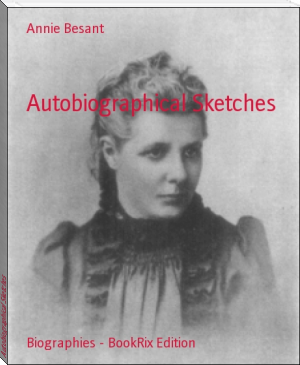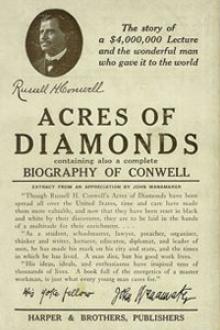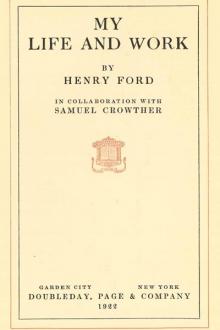Annie Besant - Annie Besant (free e reader .txt) 📗

- Author: Annie Besant
Book online «Annie Besant - Annie Besant (free e reader .txt) 📗». Author Annie Besant
PREFACE.
It is a difficult thing to tell the story of a life, and yet more difficult when that life is one's own. At the best, the telling has a savour of vanity, and the only excuse for the proceeding is that the life, being an average one, reflects many others, and in troublous times like ours may give the experience of many rather than of one. And so the autobiographer does his work because he thinks that, at the cost of some unpleasantness to himself, he may throw light on some of the typical problems that are vexing the souls of his contemporaries, and perchance may stretch out a helping hand to some brother who is struggling in the darkness, and so bring him cheer when despair has him in its grip. Since all of us, men and women of this restless and eager generation--surrounded by forces we dimly see but cannot as yet understand, discontented with old ideas and half afraid of new, greedy for the material results of the knowledge brought us by Science but looking askance at her agnosticism as regards the soul, fearful of superstition but still more fearful of atheism, turning from the husks of outgrown creeds but filled with desperate hunger for spiritual ideals--since all of us have the same anxieties, the same griefs, the same yearning hopes, the same passionate desire for knowledge, it may well be that the story of one may help all, and that the tale of one should that went out alone into the darkness and on the other side found light, that struggled through the Storm and on the other side found Peace, may bring some ray of light and of peace into the darkness and the storm of other lives.
ANNIE BESANT.
THE THEOSOPHICAL SOCIETY,
17 & 19, AVENUE ROAD, REGENT'S PARK, LONDON.
August, 1893.
CONTENTS.
CHAP.
I. "OUT OF THE EVERYWHERE INTO THE HERE"
II. EARLY CHILDHOOD
III. GIRLHOOD
IV. MARRIAGE
V. THE STORM OF DOUBT
VI. CHARLES BRADLAUGH
VII. ATHEISM AS I KNEW AND TAUGHT IT
VIII. AT WORK
IX. THE KNOWLTON PAMPHLET
X. AT WAR ALL ROUND
XI. MR. BRADLAUGH'S STRUGGLE
XII. STILL FIGHTING
XIII. SOCIALISM
XIV. THROUGH STORM TO PEACE
LIST OF BOOKS QUOTED
CHAPTER I.
"OUT OF THE EVERYWHERE INTO THE HERE."
On October 1, 1847, I am credibly informed, my baby eyes opened to the light(?) of a London afternoon at 5.39.
A friendly astrologer has drawn for me the following chart, showing the position of the planets at this, to me fateful, moment; but I know nothing of astrology, so feel no wiser as I gaze upon my horoscope.
Keeping in view the way in which sun, moon, and planets influence the physical condition of the earth, there is nothing incongruous with the orderly course of nature in the view that they also influence the physical bodies of men, these being part of the physical earth, and largely moulded by its conditions. Any one who knows the characteristics ascribed to those who are born under the several signs of the Zodiac, may very easily pick out the different types among his own acquaintances, and he may then get them to go to some astrologer and find out under what signs they were severally born. He will very quickly discover that two men of completely opposed types are not born under the same sign, and the invariability of the concurrence will convince him that law, and not chance, is at work. We are born into earthly life under certain conditions, just as we were physically affected by them pre-natally, and these will have their bearing on our subsequent physical evolution. At the most, astrology, as it is now practised, can only calculate the interaction between these physical conditions at any given moment, and the conditions brought to them by a given person whose general constitution and natal condition are known. It cannot say what the person will do, nor what will happen to him, but only what will be the physical district, so to speak, in which he will find himself, and the impulses that will play upon him from external nature and from his own body. Even on those matters modern astrology is not quite reliable--judging from the many blunders made--or else its professors are very badly instructed; but that there is a real science of astrology I have no doubt, and there are some men who are past masters in it.
It has always been somewhat of a grievance to me that I was born in London, "within the sound of Bow Bells," when three-quarters of my blood and all my heart are Irish. My dear mother was of purest Irish descent, and my father was Irish on his mother's side, though belonging to the Devonshire Woods on his father's. The Woods were yeomen of the sturdy English type, farming their own land in honest, independent fashion. Of late years they seem to have developed more in the direction of brains, from the time, in fact, that Matthew Wood became Mayor of London town, fought Queen Caroline's battles against her most religious and gracious royal husband, aided the Duke of Kent with no niggard hand, and received a baronetcy for his services from the Duke of Kent's royal daughter. Since then they have given England a Lord Chancellor in the person of the gentle-hearted and pure-living Lord Hatherley, while others have distinguished themselves in various ways in the service of their country. But I feel playfully inclined to grudge the English blood they put into my father's veins, with his Irish mother, his Galway birth, and his Trinity College, Dublin, education. For the Irish tongue is musical in my ear, and the Irish nature dear to my heart. Only in Ireland is it that if you stop to ask a worn-out ragged woman the way to some old monument, she will say: "Sure, then, my darlin', it's just up the hill and round the corner, and then any one will tell you the way. And it's there you'll see the place where the blessed Saint Patrick set his foot, and his blessing be on yer." Old women as poor as she in other nations would never be as bright and as friendly and as garrulous. And where, out of Ireland, will you see a whole town crowd into a station to say good-bye to half a dozen emigrants, till the platform is a heaving mass of men and women, struggling, climbing over each other for a last kiss, crying, keening, laughing, all in a breath, till all the air is throbbing and there's a lump in your throat and tears in your eyes as the train steams out? Where, out of Ireland, will you be bumping along the streets on an outside car, beside a taciturn Jarvey, who, on suddenly discovering that you are shadowed by "Castle" spies, becomes loquaciously friendly, and points out everything that he thinks will interest you? Blessings on the quick tongues and warm hearts, on the people so easy to lead, so hard to drive. And blessings on the ancient land once inhabited by mighty men of wisdom, that in later times became the Island of Saints, and shall once again be the Island of Sages, when the Wheel turns round.
My maternal grandfather was a typical Irishman, much admired by me and somewhat feared also, in the childish days. He belonged to a decayed Irish family, the Maurices, and in a gay youth, with a beautiful wife as light-hearted as himself, he had merrily run through what remained to him in the way of fortune. In his old age, with abundant snow-white hair, he still showed the hot Irish blood on the lightest provocation, stormily angry for a moment and easily appeased. My mother was the second daughter in a large family, in a family that grew more numerous as pounds grew fewer, and she was adopted by a maiden aunt, a quaint memory of whom came through my mother's childhood into mine, and had its moulding effect on both our characters. This maiden aunt was, as are most Irish folk of decayed families, very proud of her family tree with its roots in the inevitable "kings." Her particular kings were the "seven kings of France"--the "Milesian kings"--and the tree grew up a parchment, in all its impressive majesty, over the mantelpiece of their descendant's modest drawing-room. This heraldic monster was regarded with deep respect by child Emily, a respect in no wise deserved, I venture to suppose, by the disreputable royalties of whom she was a fortunately distant twig. Chased out of France, doubtless for cause shown, they had come over the sea to Ireland, and there continued their reckless plundering lives. But so strangely turns the wheel of time that these ill-doing and barbarous scamps became a kind of moral thermometer in the home of the gentle Irish lady in the early half of the present century. For my mother has told me that when she had committed some act of childish naughtiness, her aunt would say, looking gravely over her spectacles at the small culprit, "Emily, your conduct is unworthy of the descendant of the seven kings of France." And Emily, with her sweet grey Irish eyes and her curling masses of raven black hair, would cry in penitent shame over her unworthiness, with some vague idea that those royal, and to her very real, ancestors would despise her small, sweet, rosebud self, so wholly unworthy of their disreputable majesties.
Thus those shadowy forms influenced her in childhood, and exercised over her a power that made her shrink from aught that was unworthy, petty or mean. To her the lightest breath of dishonour was to be avoided at any cost of pain, and she wrought into me, her only daughter, that same proud and passionate horror at any taint of shame or merited disgrace. To the world always a brave front was to be kept, and a stainless reputation, for suffering might be borne but dishonour never. A gentlewoman might starve, but she must not run in debt; she might break her heart, but it must be with a smile on her face. I have often thought that the training in this reticence and pride of honour was a strange preparation for my stormy, public, much attacked and slandered life; and certain it is that this inwrought shrinking from all criticism that touched personal purity and personal honour added a keenness of suffering to the fronting of public odium that none can appreciate who has not been trained in some similar school of dignified self-respect. And yet perhaps there was another result from it that in value outweighed the added pain: it was the stubbornly resistant feeling that rose and inwardly asserted its own purity in face of foulest lie, and turning scornful face against the foe, too proud either to justify itself or to defend, said to itself in its own heart, when condemnation was loudest: "I am not what you think me, and your verdict does not change my own self. You cannot make me vile whatever you think of me, and I will never, in my own eyes, be that which you deem me to be now." And the very pride became a shield against degradation, for, however lost my public reputation, I could never bear to become sullied in my own sight--and that is





Comments (0)